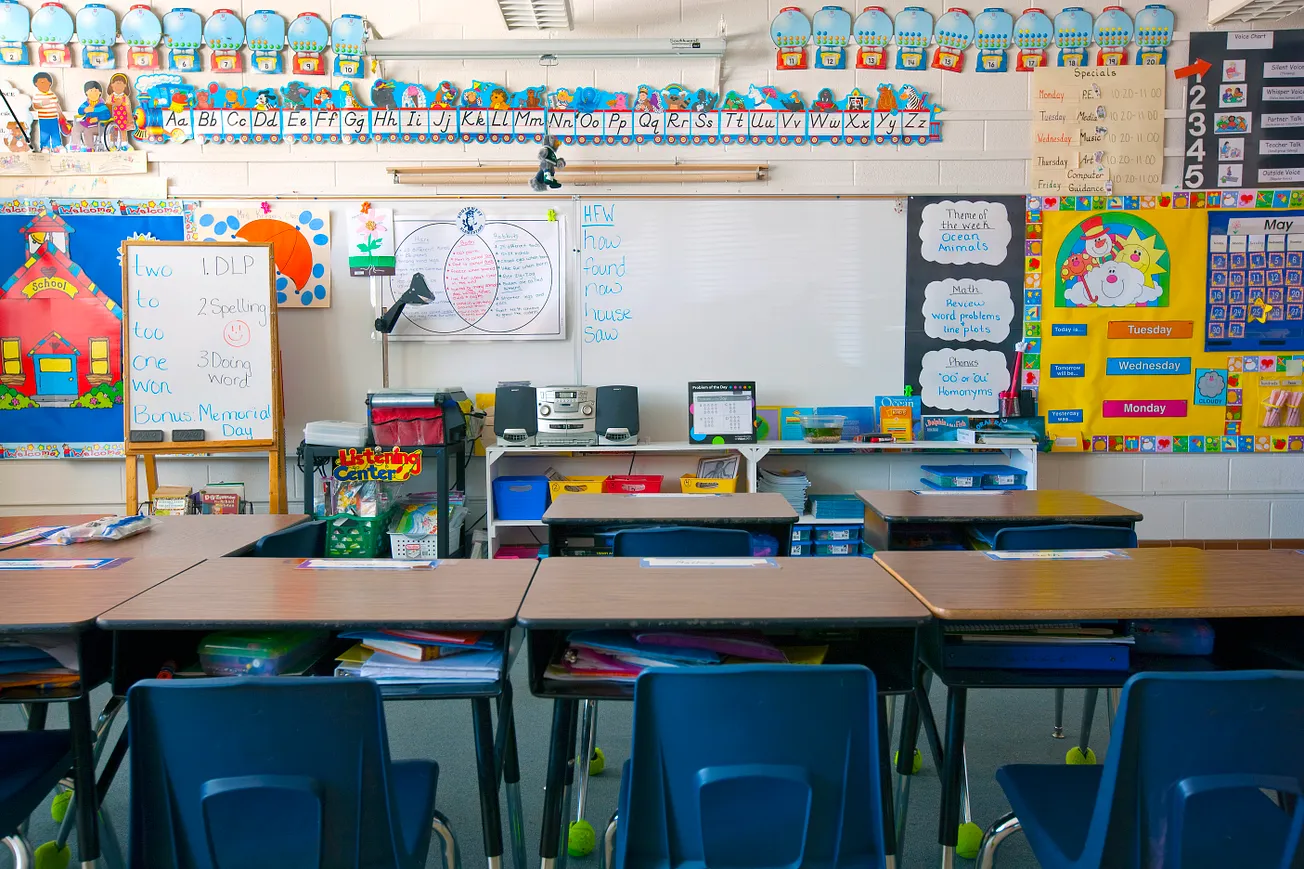
If you want to understand how Critical Race Theory functions you can’t do much better than watching this recently leaked clip of a teachers’ meeting in Portland, Oregon. Here, an eighth grade teacher (pronouns: “she, her, we and us”) tells her colleagues that “you can’t change your melanin, alright, but you can change your mind.” She compares teachers that don’t adopt “antiracism” to to sex offenders and warns them: “If you’re going to keep with those old views of colonialism it’s going to lead to being fired.”


Is it fair to call this an example of Critical Race Theory? Academics would say absolutely not. They will point out that CRT is, exactly as the name suggests, a theory — one developed in the 1970s by legal scholars to expose the way racism was baked into the structures and systems of American life.
But the reason that moms and dads across the country are discussing Critical Race Theory at their dinner tables is not because they’ve all just discovered critical theorists like Derrick Bell. It’s because that academic idea — or worldview, really — has captured schools across the country. It’s because it is affecting what their children are taught about America and about themselves.
If you’re new here — welcome! — let me catch you up on a few flashpoints that will give you a sense of what I mean:
An elementary school in Cupertino, California, instructed third graders to rank themselves based on their power and their privilege.
The San Diego Unified School District told white teachers that they are guilty of “spirit murdering” black children.
California’s Department of Education is proposing to eliminate opportunities for accelerated math in the name of “equity.” That means discouraging algebra for eighth graders and calculus for high schoolers.
Most recently, the University of California system decided to scrap the SAT and the ACT on the argument that the tests themselves are biased against low-income applicants of color.
Those are just a handful of examples from California, where I’m currently living. I could pull similar headlines from other public school systems in other states. And this is to say nothing of the country’s private schools: The more elite the school, the more in thrall they are to this ideology, for reasons I explain in depth here.
If you are reading this, I suspect you are disturbed by an ideology that segregates people by race; that insists on a racial hierarchy in which entire racial groups are monolithically good or bad; that does away with race-blind tests in the name of progress; and that insists that any inequality of outcome is evidence of systemic discrimination.
Those are bad ideas at odds with our most foundational American values. On Friday, Andrew Sullivan published an essay arguing that CRT removes the “bedrock of liberalism.” I agree.
The question is: What should be done about it?
Republican lawmakers across the country think they’ve come up with the solution: banning Critical Race Theory from public schools. There are more than a dozen states with proposed legislation banning or restricting the teaching of this ideology.
So far three of those bills — in Arkansas, Idaho and Oklahoma — have passed. In Texas, a bill limiting CRT has passed the House and is on its way to the Senate. In Florida, Gov. Ron DeSantis had repeatedly slammed CRT and said he would be willing to sign a law that prohibits it. “Critical Race Theory is race essentialism,” he said a few days ago. “That’s not something appropriate for schools.”
The idea of banning ideas should make any American shudder.
Here’s what supporters of these bills will say. They push back and say that this has nothing to do with free speech because public education is not a free marketplace of ideas, but a government-run monopoly. That’s why the courts have consistently ruled that restrictions on curricular speech are not restrictions on free speech. They’ll also point out that these ideas, or at least their downstream effects, are themselves shudder-worthy. CRT suggests, for example, that basic values like objectivity and individualism are characteristics of “white supremacy.” If that sounds like hyperbole, consider that the KIPP charter school network got rid of its motto — Work Hard, Be Nice — because, as the school put it, the slogan “diminishes the significant effort to dismantle systemic racism, places value on being compliant and submissive, supports the illusion of meritocracy, and does not align with our vision of students being free to create the future they want.” At a conference a few weeks ago I asked former Indiana governor Mitch Daniels what he thought of the bills and he compared banning CRT to banning phrenology.
Critics of these bills will point say that bad ideas need to be fought with better ideas, and that the way to defeat CRT is through rigorous inquiry and parental involvement, not through the blunt force of the administrative state. (They’ll note that such initiatives are being pushed by the party that is supposed to be allergic to government intervention.) They’ll also argue that because the language in many of these bills is so vague — some limit the teaching of so-called “divisive concepts” — they will inevitably lead to a chilly atmosphere for free inquiry and censoriousness around important subjects like race in America. For Exhibit A of the danger, consider the fact that Oklahoma City Community College just cancelled a summer class because of that state’s new law.
Is there a way to head off indoctrination while not stifling education? Is there a way to uphold a commitment to academic freedom while ensuring that an ideology based on racial essentialism doesn’t take root in our schools?
I called up two people I admire to debate these questions: Christopher Rufo and David French.
Chris has done more than any journalist in the country to shine a light on this ideology; he deserves credit for breaking many of the stories I mentioned above. Chris is an outspoken supporter of these bills, though he has small quibbles with some of them, which he explains in the conversation.
David French is a lawyer, a former JAG officer, and an Iraq War veteran. He has been a champion of civil liberties for decades, including when he led the Foundation for Individual Rights in Education (FIRE). David is far more skeptical of these laws.
Chris and David are both conservatives, but they represent the interesting and growing tension on the right between traditional conservatives like Chris, and civil libertarians, or conservative liberals, as people like David have sometimes been called.
I hope you learn as much from this conversation as I did. Oh, and one note: since we recorded this conversation, the New Hampshire bill that we discuss at one point has been revised. You can read the new draft of the bill here.
Relatedly, there are two headlines from higher ed that you shouldn’t miss.
Classics majors at Princeton will no longer be required to learn Greek or Latin. This change is being undertaken in order to combat systemic racism.
On Wednesday, Rutgers University sent out an email condemning the rise in antisemitic attacks across the country. The very next day, following protests from Students for Justice in Palestine, the school apologized for condemning antisemitism. I wish I was kidding.








